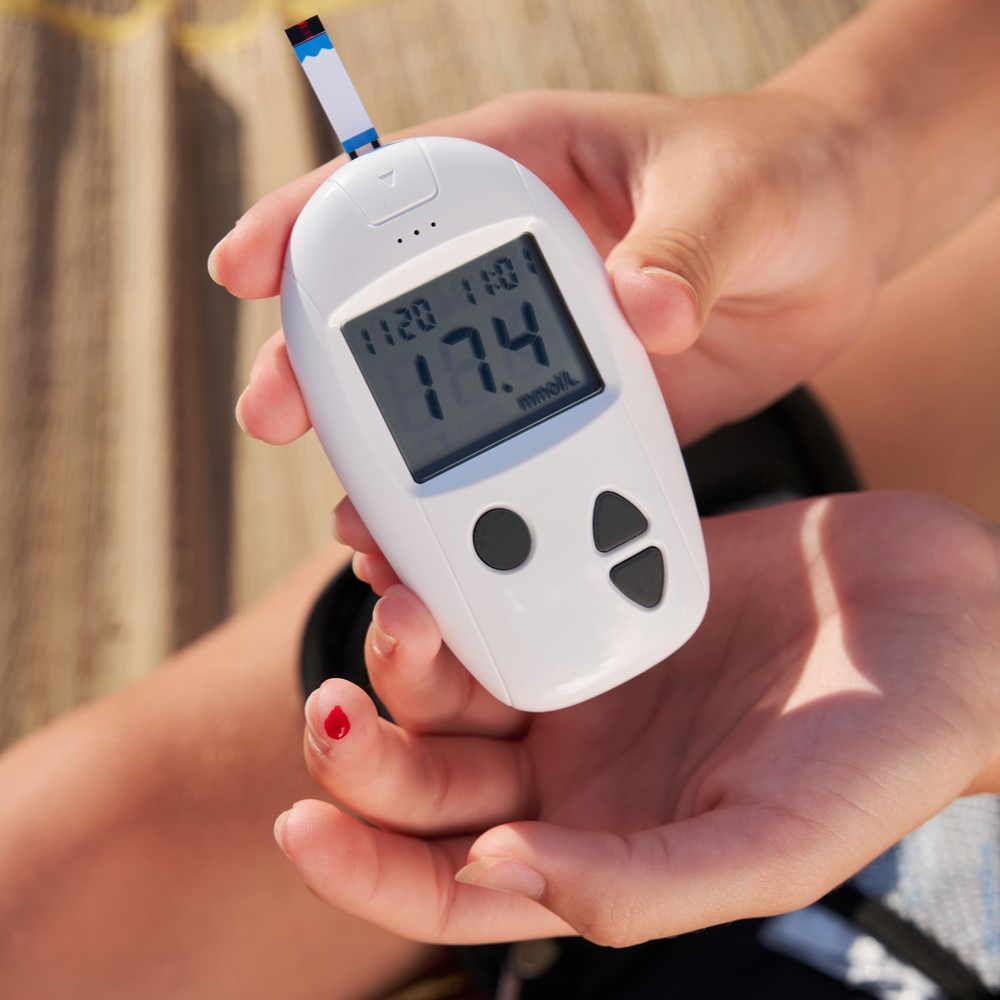
Summer’s arrival brings sunshine, vacations, and unfortunately for those with diabetes, some potential challenges. While everyone feels the effects of hot weather, people with diabetes need to be particularly aware of how it can impact their blood sugar control. In this blog post, we’ll explore the key ways hot weather can influence your diabetes management and provide actionable tips to keep your blood sugar levels in check during the hottest months.
Dehydration: A Double-Edged Sword
One of the primary concerns associated with hot weather is dehydration. Hot weather causes us to sweat more, which can lead to a significant loss of fluids. When dehydrated, the body struggles to function optimally, including regulating blood sugar levels. This can lead to hyperglycemia, or high blood sugar, a hallmark symptom of uncontrolled diabetes. However, dehydration isn’t the only culprit affecting blood sugar control.
How Hot Weather Affects Insulin
Hot weather can also alter how your body uses insulin. Insulin is a hormone responsible for ushering glucose, or blood sugar, into your cells for energy. In some cases, hot weather can increase insulin sensitivity, meaning your body might use insulin more efficiently. However, for others, hot weather can have the opposite effect, making the body less responsive to insulin, leading to blood sugar spikes.
Nerve Damage and Increased Vulnerability
People with certain diabetes complications, like nerve damage, may also be more susceptible to the effects of hot weather. Nerve damage can impair sweating, making it harder for the body to cool down effectively. This can further contribute to dehydration and potentially lead to heat-related illnesses.
Strategies to Beat the Heat and Manage Diabetes
So, what can you do to mitigate the effects of hot weather on your diabetes? Here are some key strategies:
- Stay Hydrated: This is crucial. Aim to drink plenty of water throughout the day, even if you don’t feel thirsty. Carry a reusable water bottle and sip frequently. Avoid sugary drinks and excessive amounts of caffeine, which can dehydrate you.
- Monitor Blood Sugar Levels More Frequently: Hot weather can cause fluctuations in blood sugar levels, so testing more often than usual is advisable. This will help you identify any trends and adjust your insulin dosage or meal plan accordingly.
- Plan Activities for Cooler Times: Schedule strenuous exercise or outdoor activities for the early morning or evening when temperatures are lower. Opt for air-conditioned spaces during the hottest part of the day.
- Wear Loose, Breathable Clothing: Dress in lightweight, comfortable clothing that allows your skin to breathe. This will help regulate your body temperature and prevent overheating.
- Protect Your Feet: Hot weather can increase the risk of foot problems in diabetics. Wear comfortable, well-fitting shoes and inspect your feet daily for any cuts, blisters, or other issues.
Conclusion: Partner with Your Doctor for a Healthy Summer
By following these tips and staying vigilant about your blood sugar levels, you can enjoy the summer months while keeping your diabetes under control. Remember, if you have any concerns about how hot weather is affecting your diabetes, consult with our doctor for personalized guidance. Their expert advice can empower you to manage your diabetes effectively throughout the summer season.
- Tags:
- Diabetes



